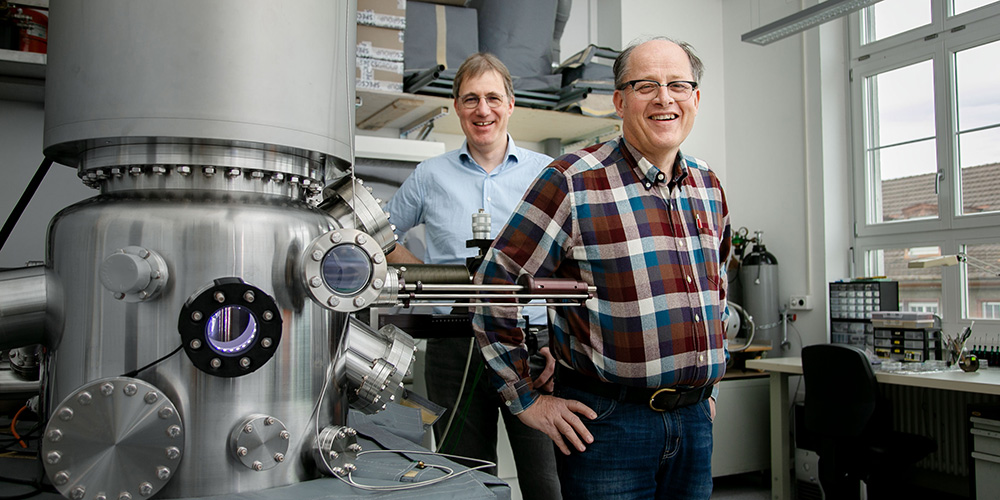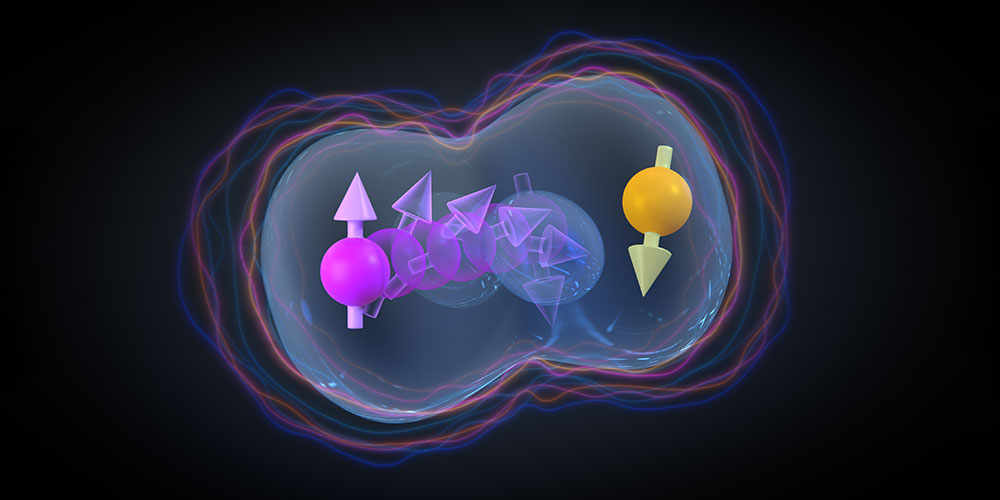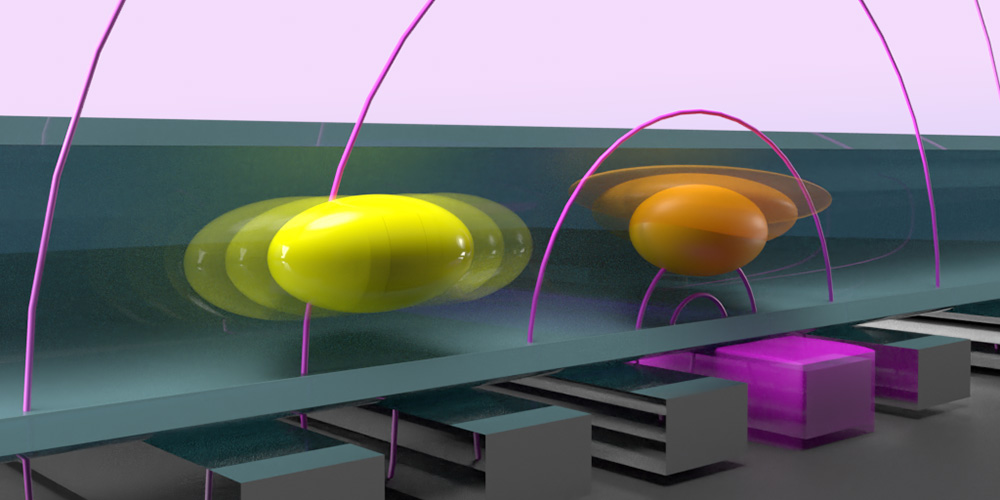The University of Basel and the University of Bern are setting up a new research center to enable the construction of superconducting quantum units. The Werner Siemens Foundation is supporting the project with a total of CHF 15 million over the next eleven years.

Researchers from the University of Basel and the NCCR SPIN have achieved the first controllable interaction between two hole spin qubits in a conventional silicon transistor. The breakthrough opens up the possibility of integrating millions of these qubits on a single chip using mature manufacturing processes.

The University Council has appointed Professor Murielle Delley as Assistant Professor of Inorganic Chemistry and granted four promotions in the Faculty of Medicine and the Faculty of Science.
Cooling materials to extremely low temperatures is important for basic physics research as well as for technological applications. By improving a special refrigerator and a low-temperature thermometer, Basel scientists have now managed to cool an electric circuit on a chip down to 220 microkelvin – close to absolute zero.

Quantum bits (qubits) are the smallest units of information in a quantum computer. Currently, one of the biggest challenges in developing this kind of powerful computer is scalability. A research group at the University of Basel, working with the IBM Research Laboratory in Rüschlikon, has made a breakthrough in this area.

To perform calculations, quantum computers need qubits to act as elementary building blocks that process and store information. Now, physicists have produced a new type of qubit that can be switched from a stable idle mode to a fast calculation mode. The concept would also allow a large number of qubits to be combined into a powerful quantum computer, as researchers from the University of Basel and TU Eindhoven have reported in the journal “Nature Nanotechnology”.
Physicists at the University of Basel are able to show for the first time how a single electron looks in an artificial atom. A newly developed method enables them to show the probability of an electron being present in a space. This allows improved control of electron spins, which could serve as the smallest information unit in a future quantum computer.
The international doctoral program “QUSTEC” will be established at the European Campus.

A new technique makes it possible to obtain an individual fingerprint of the current-carrying edge states occurring in novel materials such as topological insulators and 2D materials.

